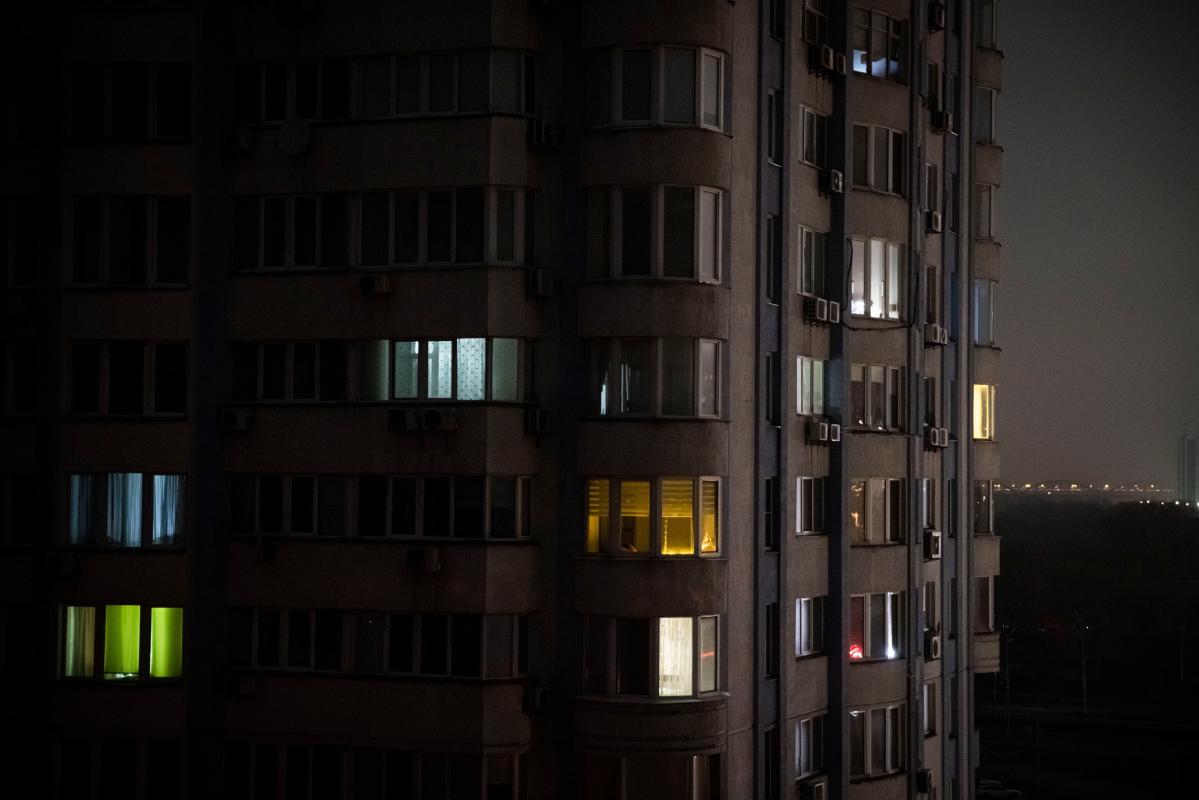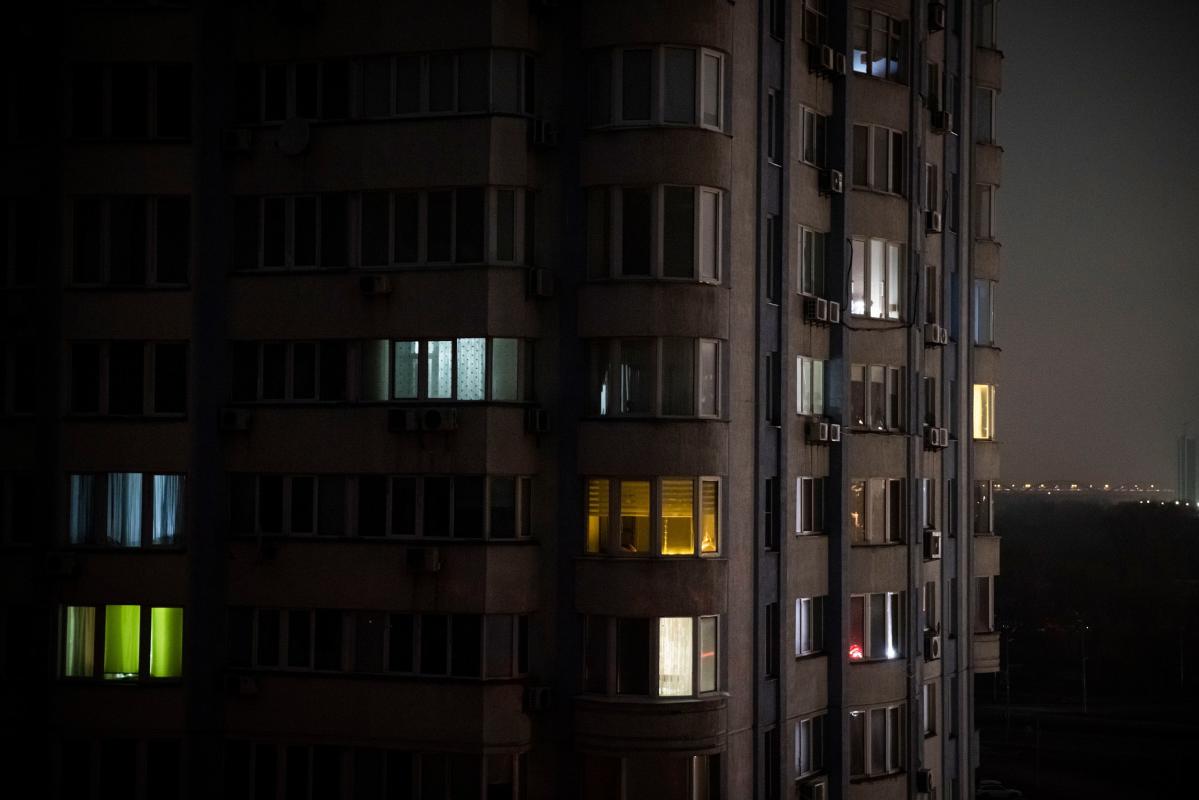
(Bloomberg) — Ukraine President Volodymyr Zelenskiy said Iran must be punished for what he called its “complicity in Russian terror” and accused the regime in Tehran of helping to prolong the war and exacerbate its impact on food and energy supplies.
Most Read from Bloomberg
“If it was not for the Iranian supply of weapons to the aggressor, we would be closer to peace now,” Zelenskiy said Sunday evening in his daily address. Earlier, European Commission President Ursula von der Leyen told Zelenskiy on a telephone call that she will this week propose a financial aid package of as much as €18 billion ($17.9 billion) to help cover Ukraine’s needs into next year.
Kyiv and six other regions in northern and central Ukraine are meanwhile facing additional emergency blackouts on Monday due to the growing power shortage following Russian attacks on energy infrastructure.
(See RSAN on the Bloomberg Terminal for the Russian Sanctions Dashboard.)
Key Developments
-
Impounded Russian Superyachts Are Costing Millions to Maintain
-
European Gas Prices Drop as Warm Weather Contains Heating Demand
-
Biden’s Big Oil Feud Ignites Just as World Needs US Crude
On the Ground
Ukrainian forces repelled attacks over the past day near eight settlements in the eastern Donetsk and Luhansk regions, Ukraine’s General Staff said on Facebook. The country’s southern operational command said that three Russian munitions depots and a UAV control station were destroyed. Russian troops shelled the Nikopol district in the Dnipropetrovsk region overnight, local authorities said on Telegram. The UK Ministry of Defence said in its latest intelligence update that “Russia’s continued lack of air superiority is likely exacerbated by poor training, loss of experienced crews, and heightened risks of conducting close air support” and that “this is unlikely to change in the next few months.”
(All times CET)
Russian-Occupied Kherson Suffering Power Issues (11 a.m.)
The southern city of Kherson and the surrounding areas are experiencing problems with electricity supply and communications, according to a Ukrainian official for the Russian-occupied region.
Yuriy Sobolevskiy, deputy chairman of the Kherson Regional Council, said in a television interview that forced evacuations are continuing. He also accused Russia of spreading false information about Ukraine apparently planning to blow up a nearby dam, and said Russian forces are laying mines in city infrastructure and looting museums and medical facilities.
Refugees ‘Major Challenge for Germany’ (10:45 a.m.)
German Chancellor Olaf Scholz said that the more than 1 million Ukrainian refugees now registered in Germany are posing a major challenge for cities and municipalities.
In a speech in Berlin, Scholz also referred to an agreement last week with the premiers of Germany’s 16 states to provide an additional €1.5 billion in federal funds this year and next to help cope with the influx.
Georgia Shows Strong Recovery: IMF (10:15 a.m.)
Georgia’s economy has recovered robustly from the Covid-19 pandemic, while adverse spillovers from Russia’s war in Ukraine have had less impact than expected, according to James John, head of mission for the International Monetary Fund.
Economic growth is projected at 10% in 2022, and inflation at 10.5%, with both expected to slow next year, according to an IMF statement. Tourism revenue, a surge in immigration and financial inflows triggered by the war, as well as a rise in transit trade, have lifted growth and fiscal revenues.
Turkey, Asia Buying Banned Russian Coal (9 a.m.)
Europe’s hard ban on Russian coal imports, which came into effect on Aug. 10, has pushed rejected Russian coal cargoes to Turkey, India, China and Africa.
These coal cargoes are being sold at a significant discount compared to similar grade coal from other countries. In September, Turkey imported Russian thermal coal at $199 per metric ton, 23% lower than similar grade coal from Colombia, its next largest supplier. See the full BNEF research report here.
Impounded Russian Superyachts Costing Millions (8:30 a.m.)
Seizing superyachts belonging to Russian oligarchs has been a public relations success for Western governments, but the legal and financial implications are complex.
The vessels cost millions of dollars a year to maintain and some US and European taxpayers are footing the bill:
US, Russia Discussed Avoiding Escalation: WSJ (10:15 p.m.)
US National Security Adviser Jake Sullivan and senior Russian counterparts have held talks in recent months on guarding against the risk of escalation and warn Moscow against using nuclear or other weapons of mass destruction, the Wall Street Journal reported, citing US and allied officials. A settlement of the war in Ukraine wasn’t an aim of the discussions, according to the report.
Most Read from Bloomberg Businessweek
©2022 Bloomberg L.P.




